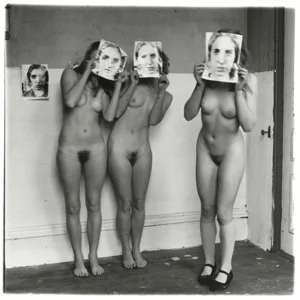“Real things don’t frighten me”: Portraits of Francesca Woodman from the Alen MacWeeney Collection
- Barbara Diener
- January 19, 2024
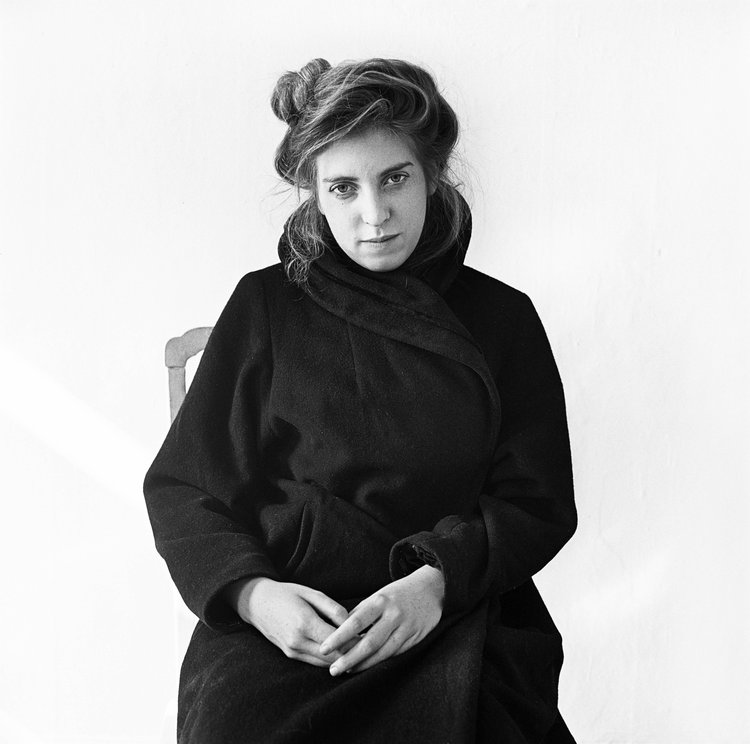
Alen MacWeeney
Alen MacWeeney is an Irish born photographer, based in New York since the 1960s, who has photographed the Irish landscape and people extensively. As a young photographer MacWeeney reached out to established fashion and editorial photographer Richard Avedon, who hired MacWeeney to be his assistant. Now best known for his work about Irish Travellers, rural life, Belfast in 1971, and the New York City subway, the knowledge MacWeeney gained from working with Avedon resurfaced in his own editorial work throughout the years. In 2019 UCC Library acquired the Alen MacWeeney Archive.
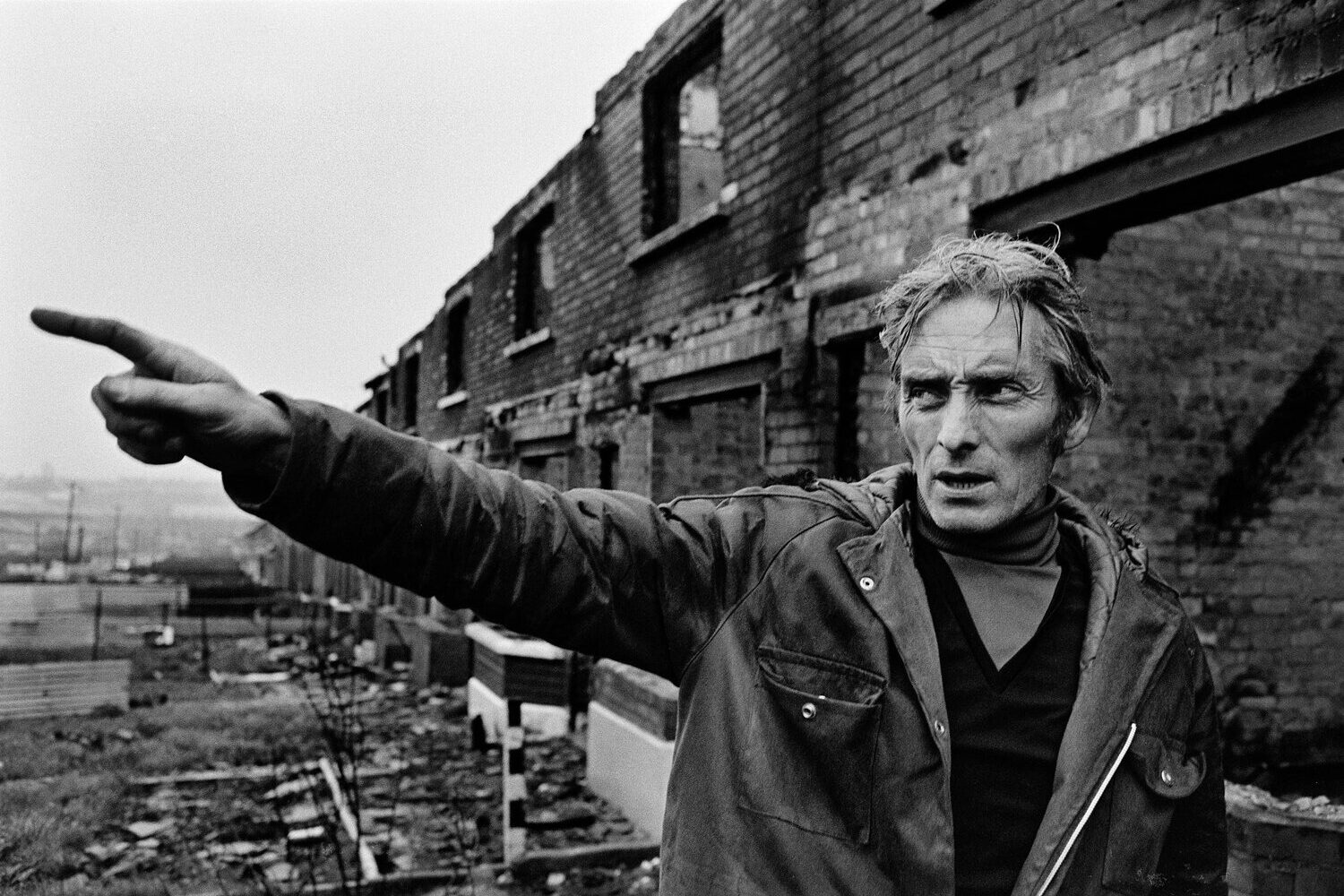
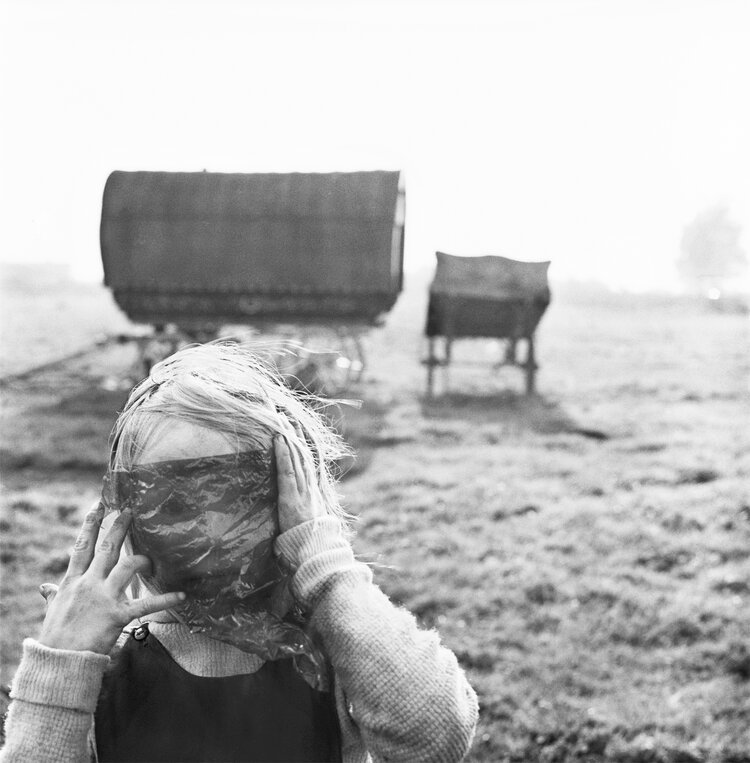
Left: Belfast, 1971; Right: Child with cellophane, Cherry Orchard; Alen MacWeeney Courtesy University College Cork © 2022 (UCC All Rights Reserved).

A limited edition of 30 +1 artist proof of fifteen 8 ½ x 11” photographs of Francesca Woodman by Alen MacWeeney in 1980, including a “Memory of Francesca,” printed on watercolor paper, slip-cased, and signed by the author, published, New York, February 2021.
Francesca Woodman
Francesca Woodman (American, 1958-1981) was an artist, whose inventive self-portraits inspired many image-makers to follow in her footsteps. Influenced by early female photographers such as Countess of Castiglione and Julia Margaret Cameron, by Surrealism and literature, Woodman confronted her anxieties and curiosities about adulthood, sexuality, and perceived femininity. “The allusions to sex in my work do not stem from any modern political or feminist concern but from more a general preoccupation with morals—often in a literary sense.”
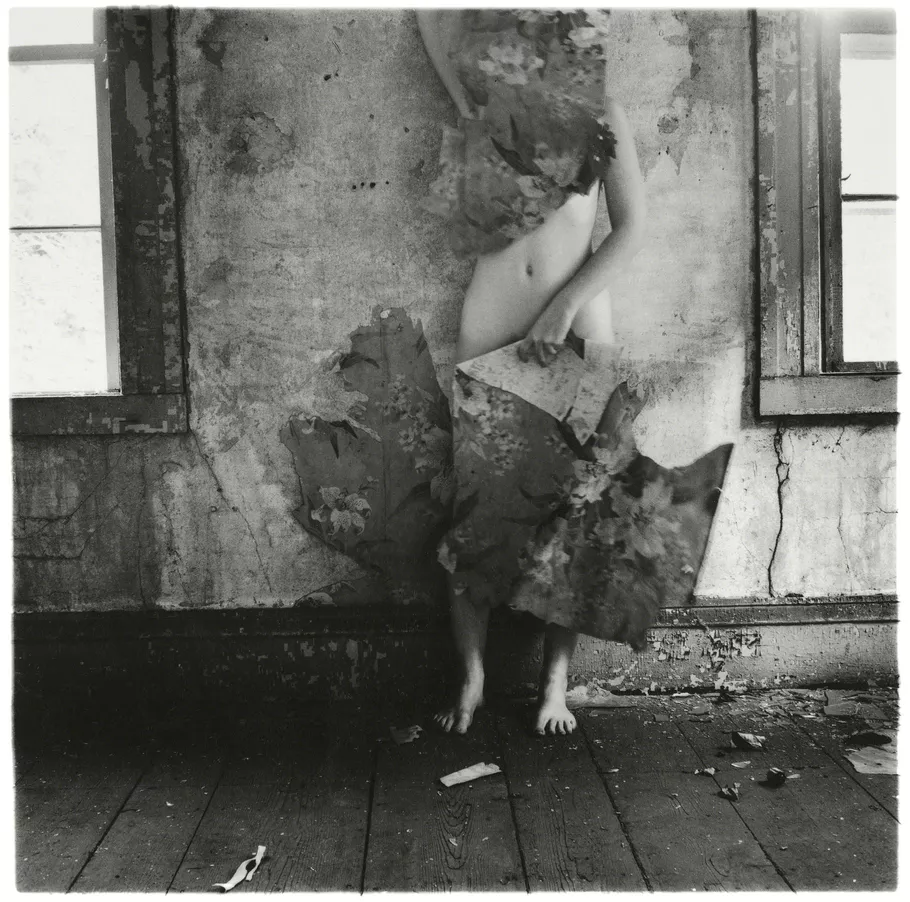
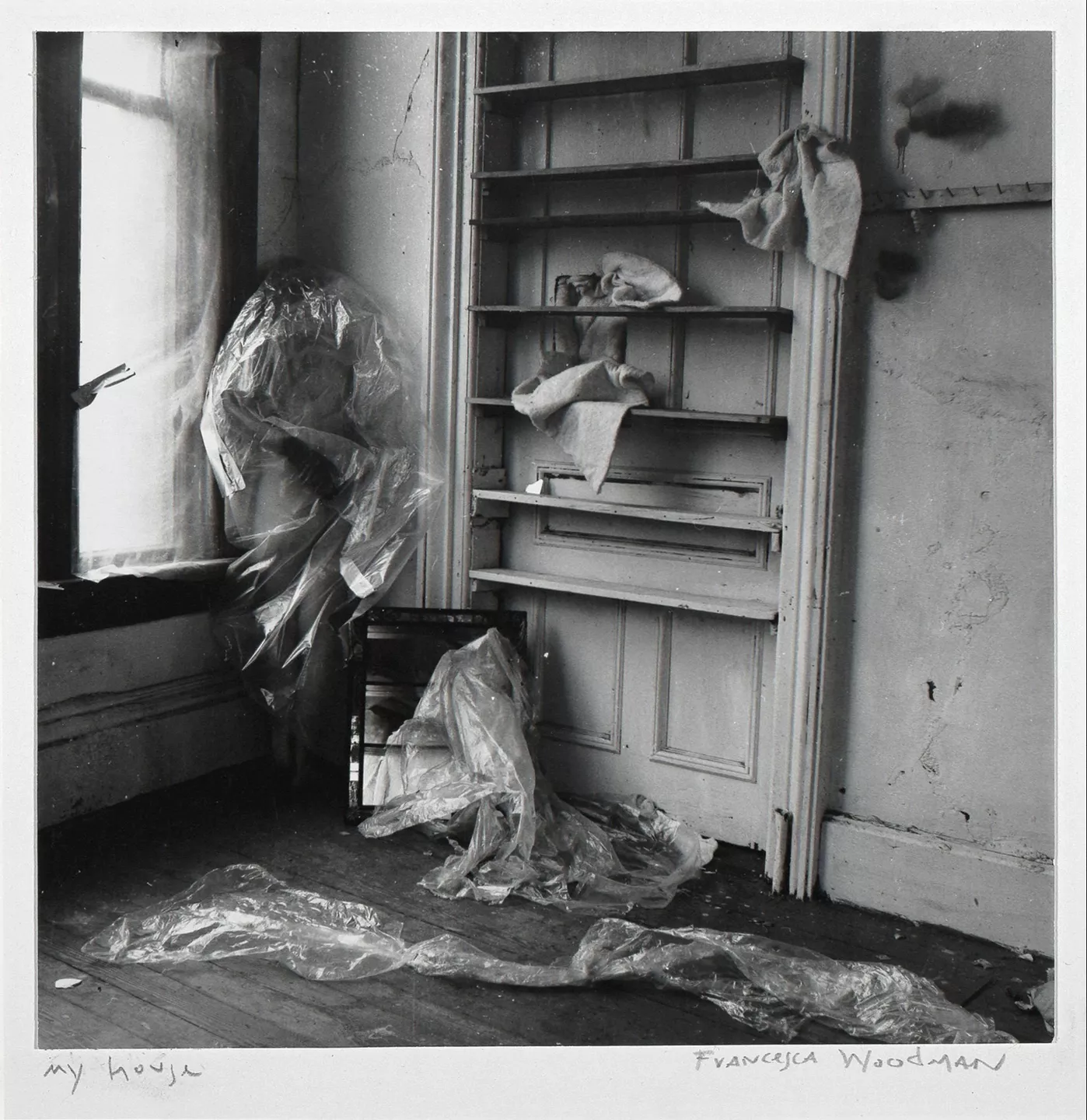
Photographs above taken in Rhode Island between 1975 and 1978. © Woodman Family Foundation,
Woodman is best known for her self-portraits in which she positions her often nude body into vulnerable, suggestive, and humorous positions, frequently blurred or blending into the background. Her presence is intense and it is difficult to view the photographs in retrospect without considering her dramatic death. She committed suicide by jumping out of a window on 19 January, 1981 at age 22. She took over 800 photographs in her short working life.
Accounts from family and friends portray her with a sense of humour and an eagerness to enjoy life but she also struggled with depression, pressure, and responsibilities of becoming an adult. Her friend Betsy Berne said about Woodman’s photographs: “Let me just emphasise: she had a great sense of humour. There’s a great deal of wit in them, and irony.”
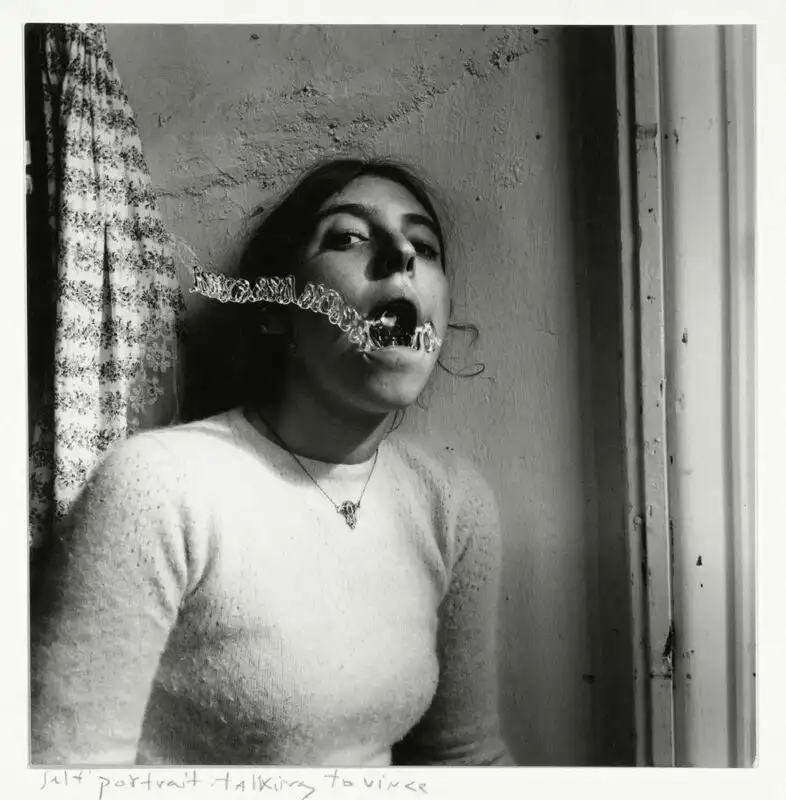
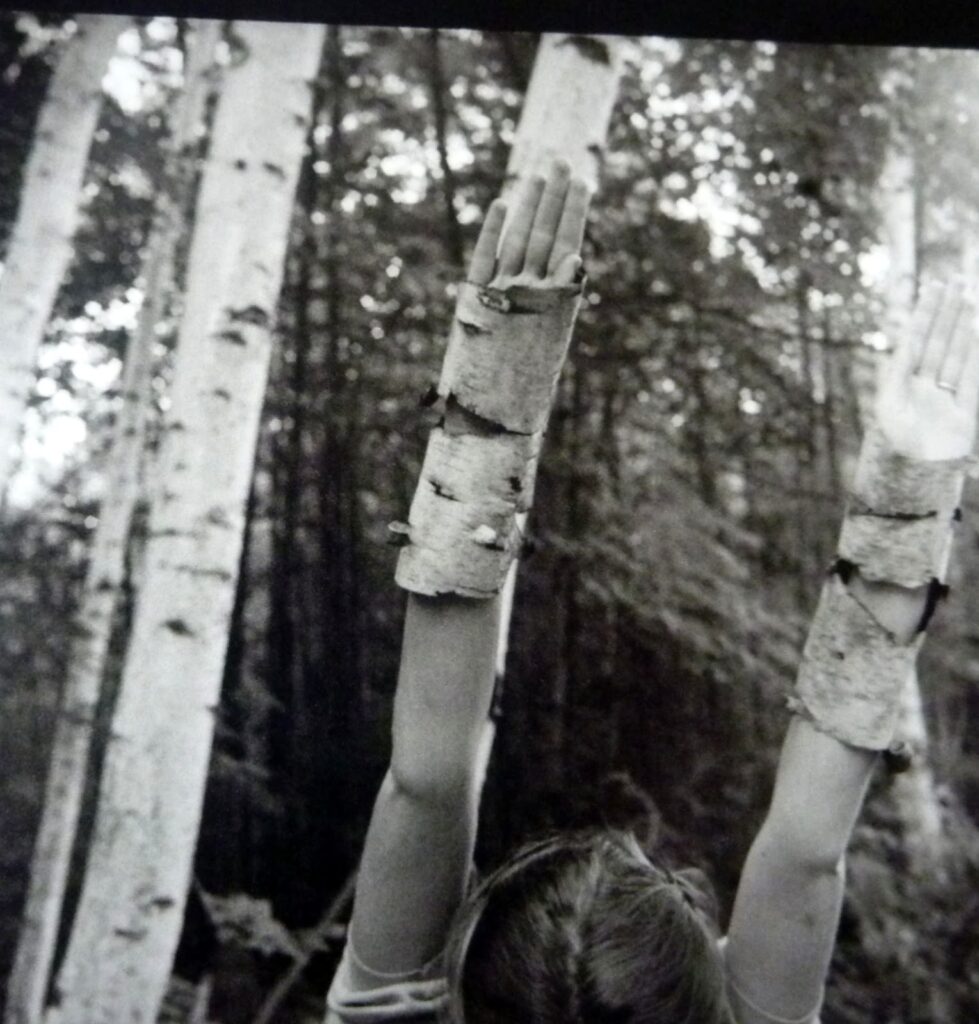
Left: Self-Portrait talking to Vince, Providence, Rhode Island, 1977; Right: Untitled, MacDowell Colony, Peterborough, New Hampshire, 1980 © Woodman Family Foundation (All Rights Reserved).
Alen MacWeeney meets Francesca Woodman
Alen MacWeeney met Francesca Woodman in 1979 when she knocked on his apartment door in Gramercy Park, New York City, and asked for his feedback on a series of photographs she had taken in Italy.
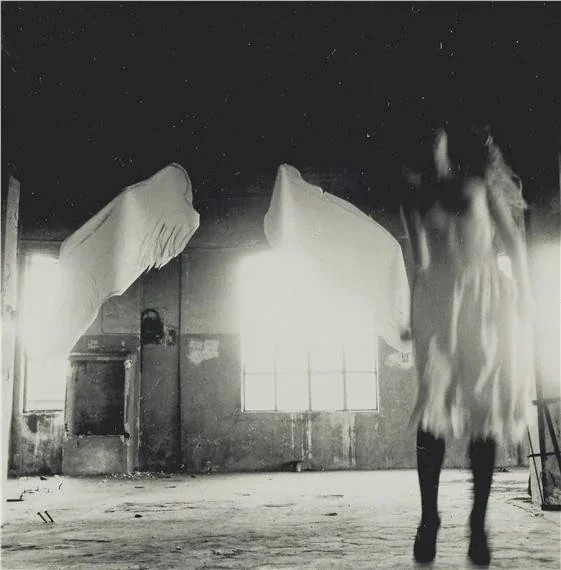
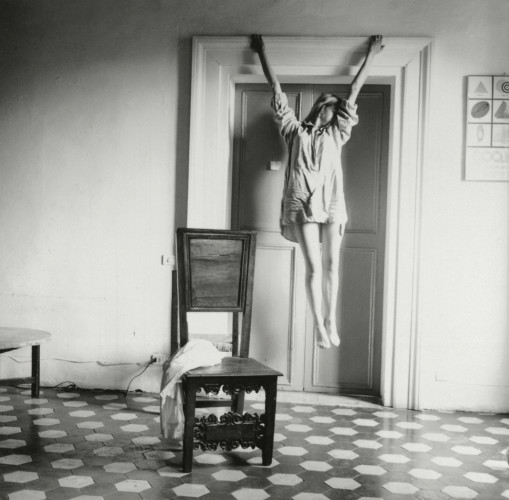
Left: From Angel series, Rome, Italy, 1977; Right: Untitled, Rome, Italy, 1977–1978. © Woodman Family Foundation (All Rights Reserved).
MacWeeney had been photographing for several fashion magazines and Woodman wanted to venture into that genre of photography, as well. Both of her parents were artists, which likely put a lot of pressure on her to find recognition in their world. Commercial success in fashion and editorial work was a way to rebel against her upbringing, while still receiving desired accolades. Woodman sought out MacWeeney as a mentor and they developed a friendship over conversations about images, aesthetics, and the meaning of life.
Francesca Woodman once said that she put herself in front of the camera out of convenience but her photographs seem to project the way she saw the world and responded to it with her entire being. One of her photographs depicts three nude female figures, who are each holding a mask of Woodman’s face in front of their own. This image in particular encourages the viewer to contemplate the role of a face in a portrait. Is that what we associate with identity or can a body—posture and stance—be indicative of a persons personality, as well?
About Being My Model, Providence, Rhode Island, 1976. © Woodman Family Foundation (All Rights Reserved).
Francesca Woodman and Alen MacWeeney Collaborate
Alen MacWeeney photographed Francesca Woodman in her Lower East Side Manhattan apartment, scarcely decorated with an array of chairs and flooded with natural light. MacWeeney masterfully captured Woodman’s fierce character in this series of environmental portraits. In contrast to her own self-portraits, MacWeeney’s photographs are in sharp focus. In most of them she is gazing intensely, but non-confrontational, into the camera. Her poses are different, as well, presumably because she received some guidance from MacWeeney. She is present, filling the frame, with no intention to disappear.
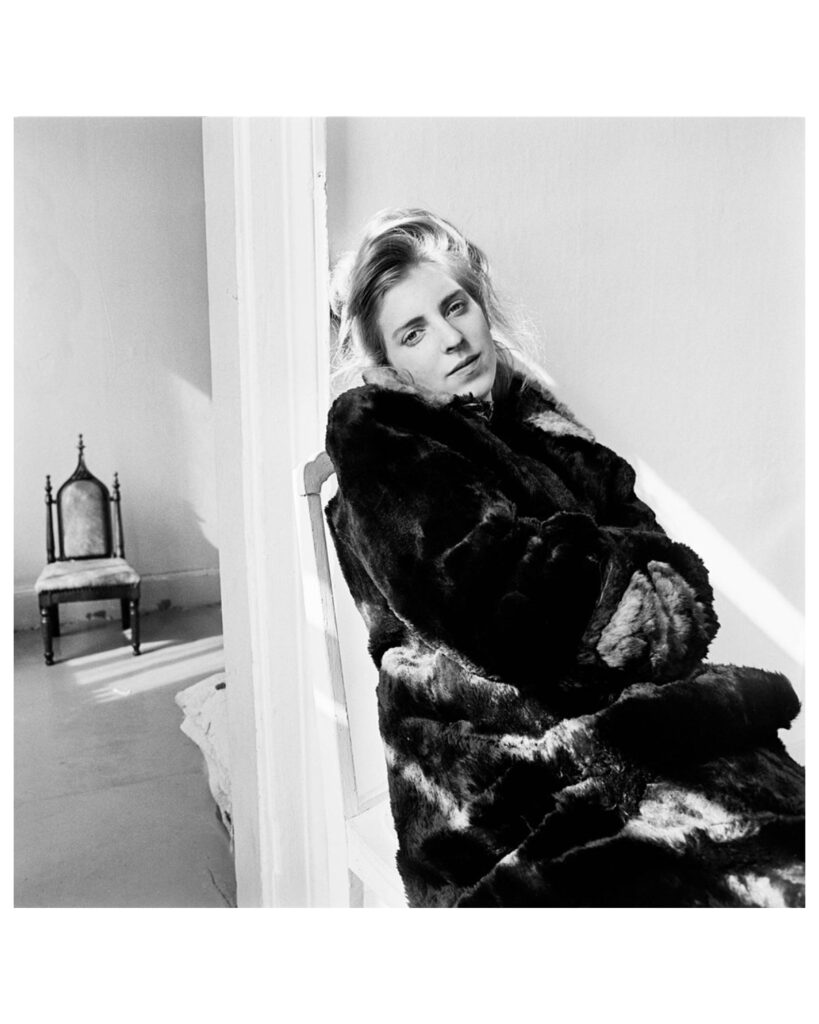
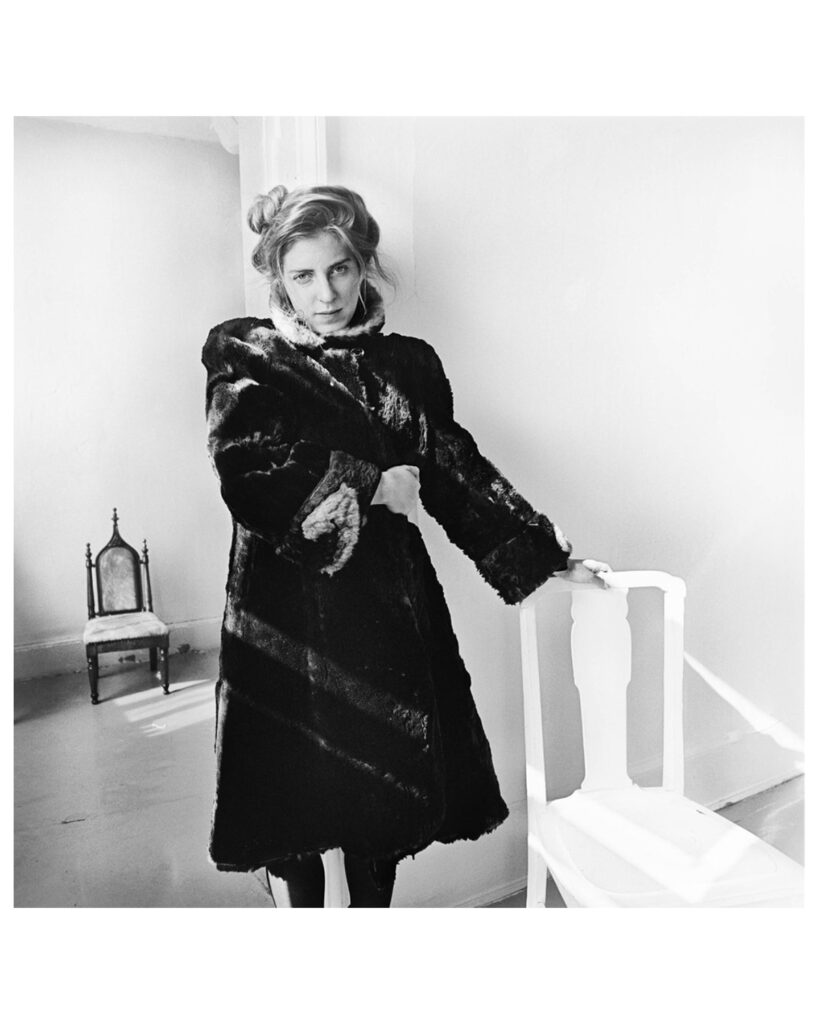
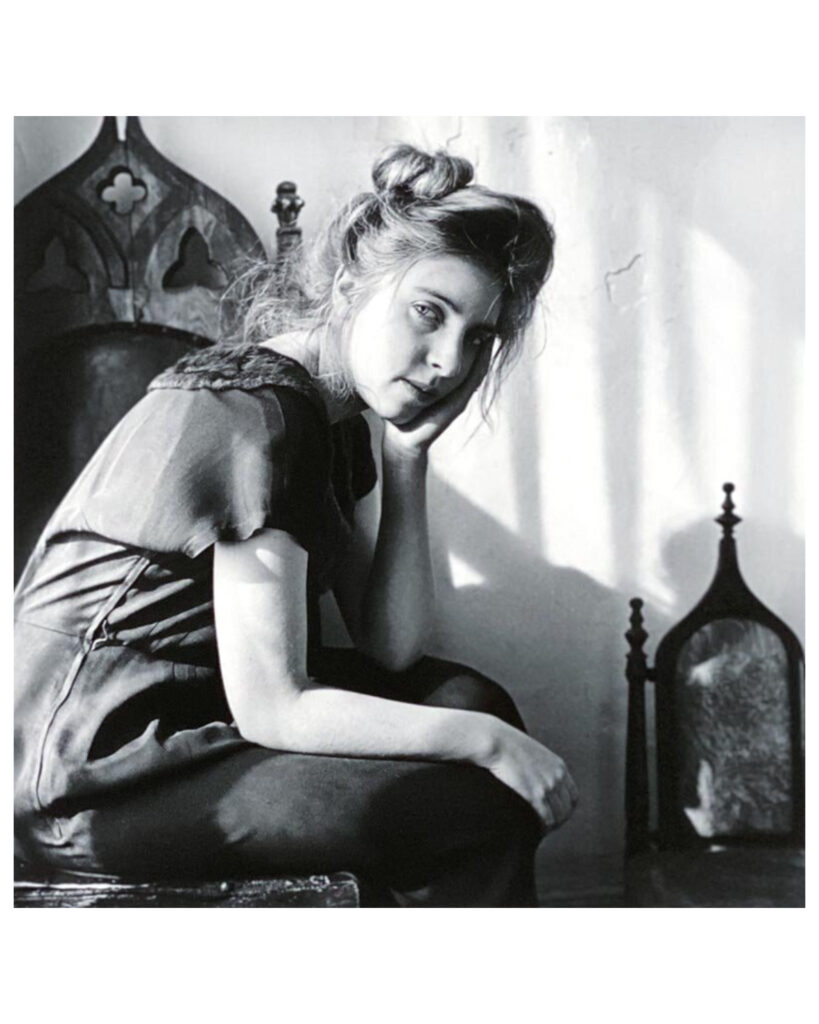
Above photographs by Alen MacWeeney Courtesy University College Cork © 2022 (UCC All Rights Reserved).
MacWeeney’s portraits are collaborations between the subject and the photographer and the resulting images of both photographers address questions about portraiture: who has agency, the sitter or the maker? is the sitter being objectified? can self-portraiture in fact transcend the self and address existential queries? can a portrait capture the illusive “true self” of a person?
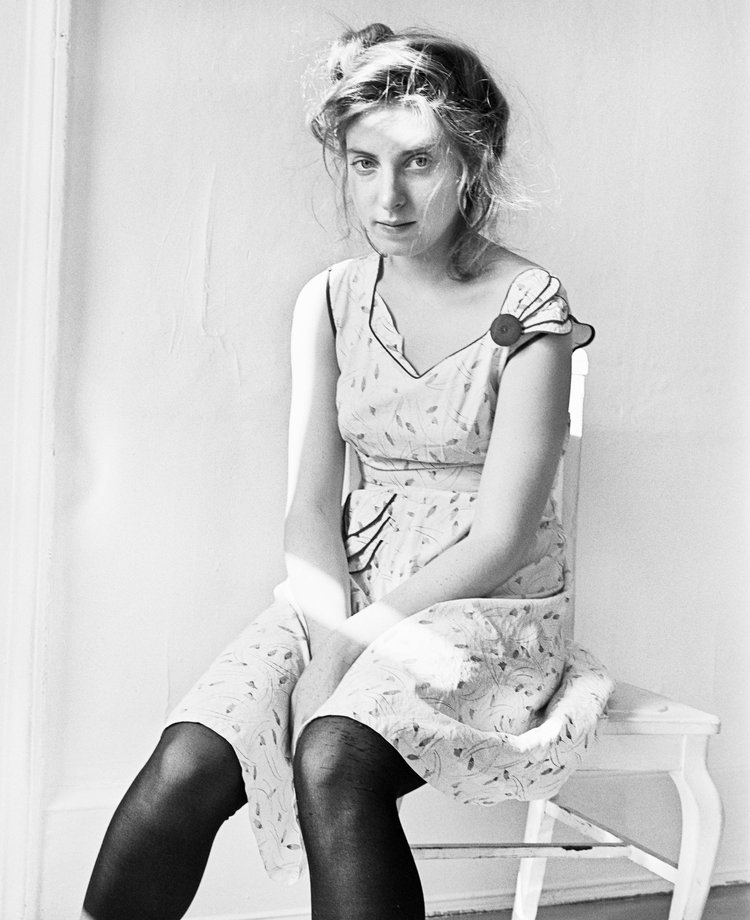
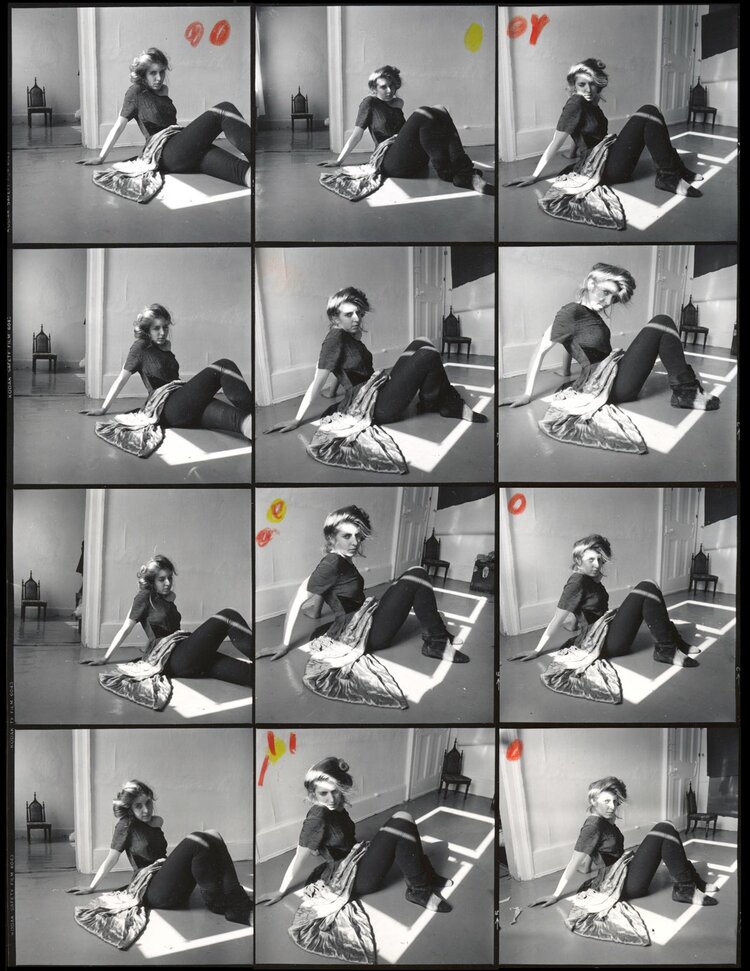
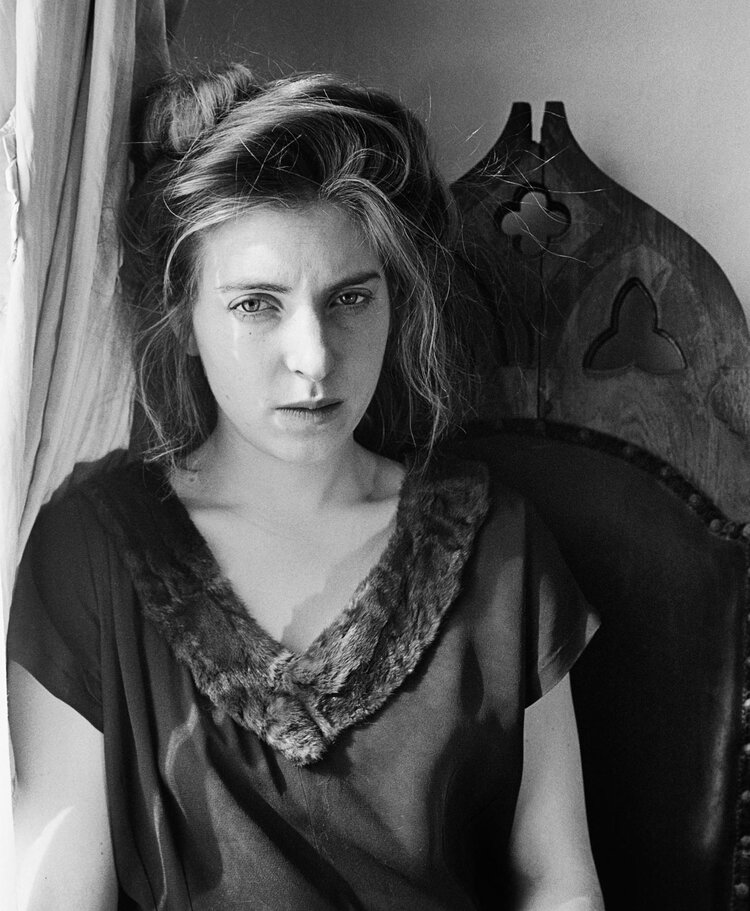
Above photographs by Alen MacWeeney Courtesy University College Cork © 2022 (UCC All Rights Reserved).
Even in her short life Francesca Woodman left behind an incredibly powerful oeuvre, including a series of artist books in which she pasted small black and white prints and transparencies of her own photographs into old notebooks. About these she wrote: “The books started to influence the work–I made my own geometries for the geometry book–dense aligned writing shaped baroque angel pictures.”
An avid diarist throughout her life her last entry sums up Woodman’s inner battles:
“This action that I foresee has nothing to do with melodrama. It is that life, as lived by me now, is a series of exceptions… I was (am?) not unique but special. This is why I was an artist… I was inventing a language for people to see the everyday things that I also see… and show them something different… Nothing to do with not being able ‘to take it’ in the big city, or w/ self-doubt or because my heart is gone. And not to teach people a lesson. Simply the other side.”
